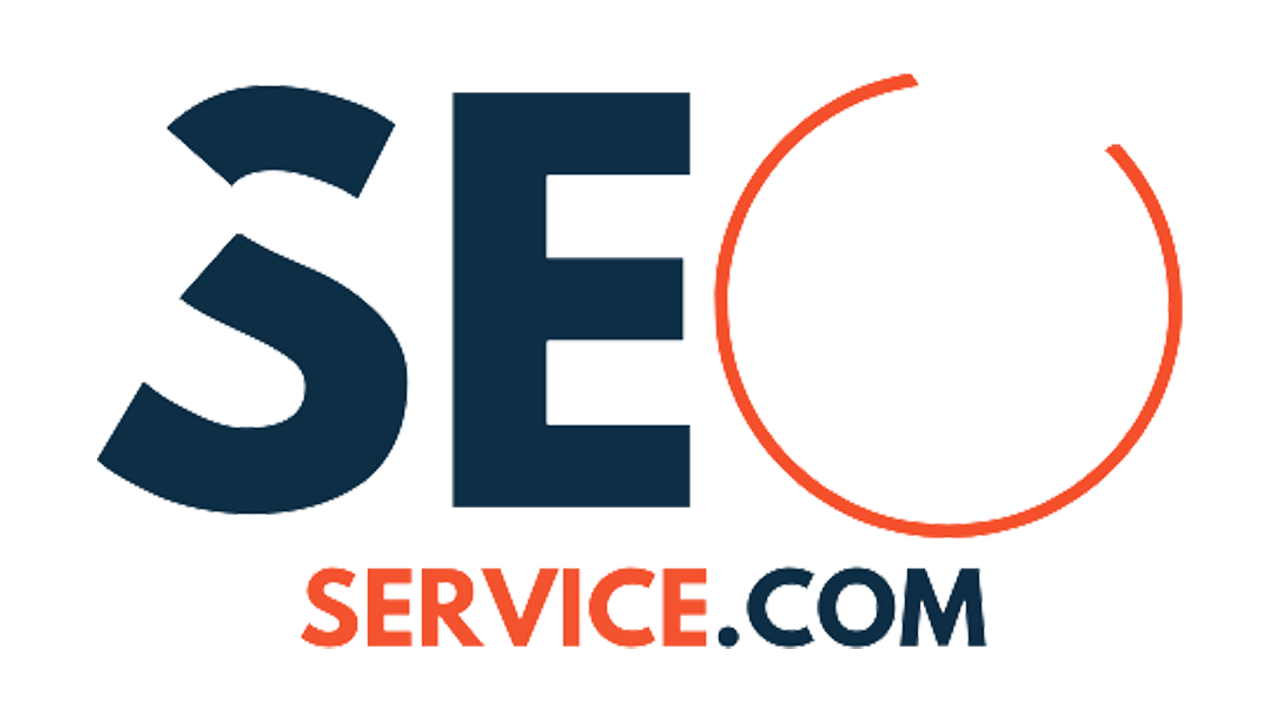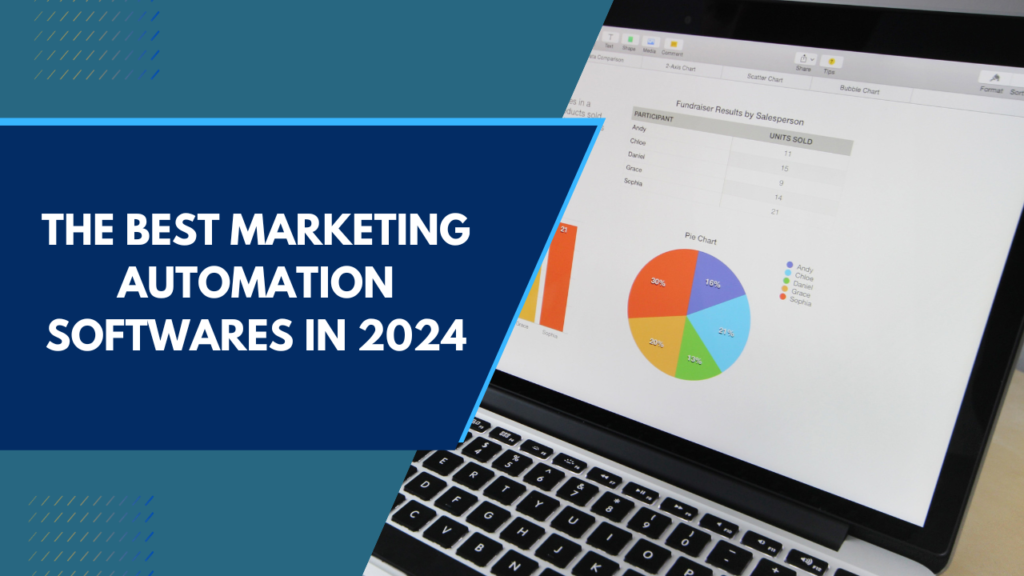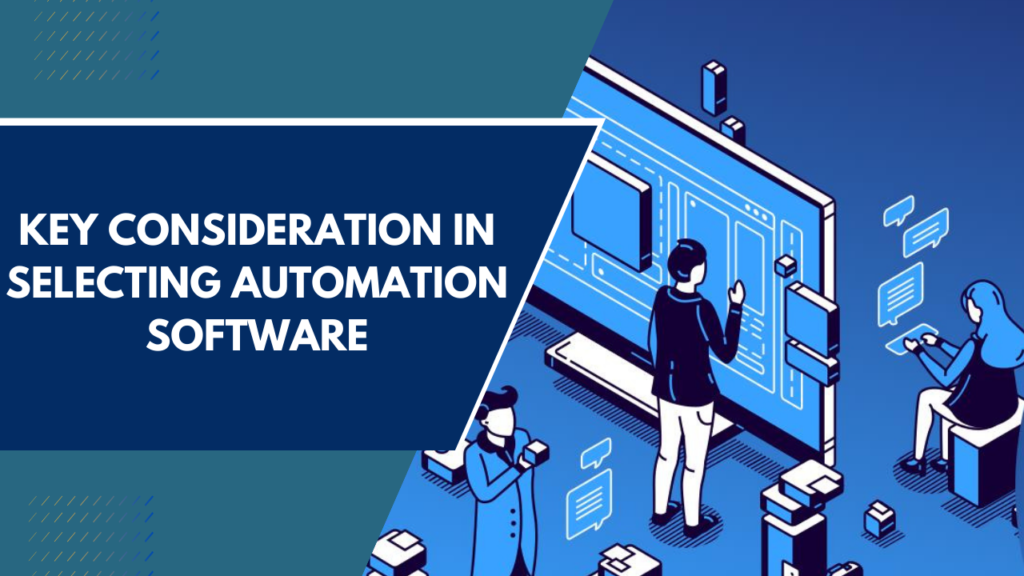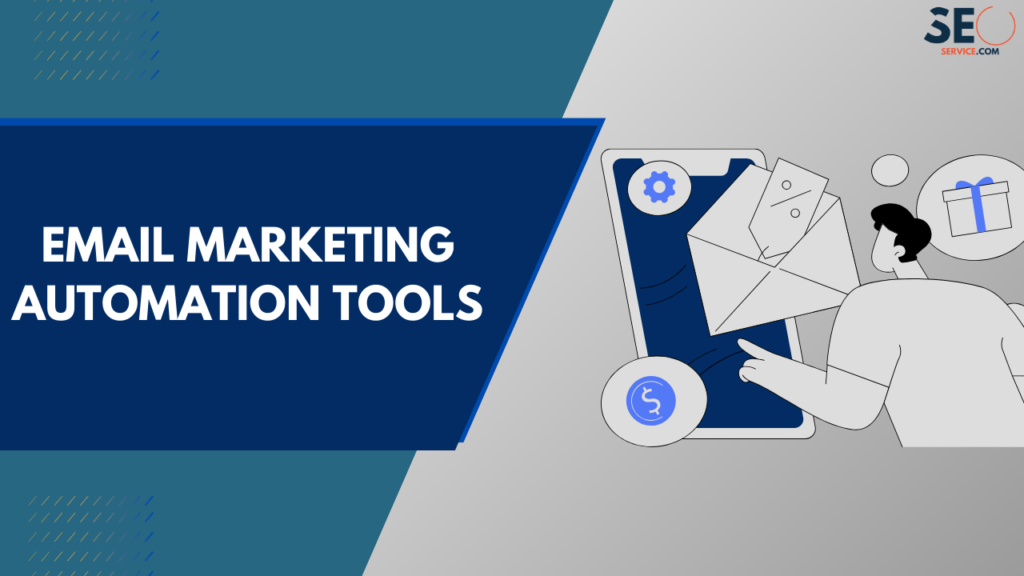Marketing automation platforms have become invaluable assets for modern businesses across industries looking to streamline their lead generation, nurturing and conversion processes with the best marketing automation software. However, with hundreds of tools and solutions flooding the martech landscape, identifying the ideal platform suited for your specific needs and budget can be an overwhelming task.
This comprehensive guide aims to simplify that purchase decision by breaking down the must-have features that you should evaluate when researching options for the best marketing automation software. Whether you are looking to scale your social media advertising, run targeted email nurture campaigns, or build multi-channel customer journeys, this guide will help match software capabilities to your goals.
Additionally, tips on comparing solutions across essential criteria like ease of use, scalability, support availability and cost implications will enable you to objectively evaluate alternatives. So let’s get started!
What Are Automation Tools?
In simple terms, marketing automation refers to software that utilizes rule-based algorithms, workflows and data insights to automate repetitive marketing tasks. This eliminates the need for manual effort while optimizing cross-channel campaign execution, messaging personalization and process efficiency at scale.
From email nurturing sequences to social media posting to customer database management, the best marketing automation software benefits key activities. Robust platforms provide an integrated central hub to streamline targeting, messaging and budget allocation across channels based on integrated audience insights. This drives more impactful campaign execution and customer engagement by removing human limitations.
What Makes A Best Marketing Automation Tool?
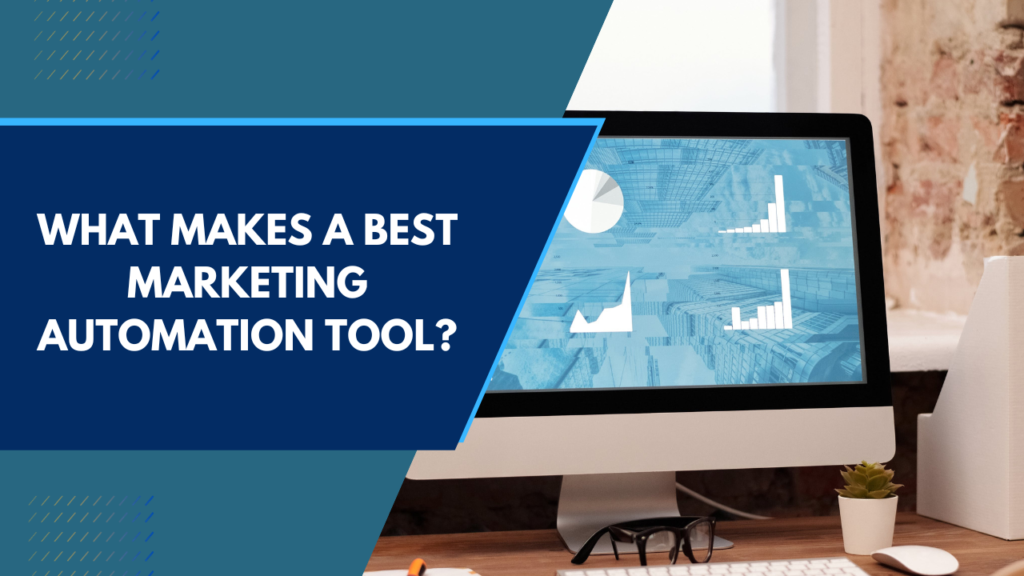
The ideal marketing automation solution empowers growing businesses to execute at enterprise-scale without massive teams. When evaluating your options ensure the platform provides user-friendly automation across channels, data centralization, customizable workflows and alignments to business objectives. Specifically, look for the following in a strong feature set:
- Omnichannel support – email, mobile, social ads, website, etc.
- Segmentation and personalization capabilities
- Automated workflows and lead scoring
- Landing page and form building
- Campaign creation, management and analytics
- CRM and salesforce integration
- Easy 3rd party app integrations
- Flexible pricing options aligned to business needs
Consideration In Selecting Automation Software
When selecting automation software, several key considerations should be taken into account to ensure that the chosen tool meets the specific requirements of the project, is within budget and is suitable for the team’s skills and experience.
When selecting marketing automation software, several key considerations should be taken into account:
1. Features and Functionality
The software should provide advanced features such as lead scoring, behavior tracking, A/B testing and personalized content creation. When it comes to selecting the best marketing automation software, it should also offer the specific functionalities you need, such as email marketing campaigns, lead management tools, social media integration, landing page creation capabilities, and analytics.
2. Integration Capabilities
The best marketing automation software should be able to integrate with other systems you use, such as customer relationship management (CRM) platforms, to establish a connected, cohesive sales and marketing process.
3. Scalability and Flexibility
The platform should be able to scale and adapt to your changing requirements, offering a high degree of customization and the ability to add new features and functionality as needed.
4. Data Security and Privacy Compliance
Given the importance of data security and privacy, it’s vital to prioritize the compliance and security features of the marketing automation platform.
5. Customer Support and Learning Resources
Look for platforms that offer comprehensive customer support, including documentation, tutorials, training resources, and responsive customer service. A vibrant user community can provide valuable insights, tips, and best practices to maximize your marketing automation efforts.
6. Pricing
Comparing pricing and support options is crucial. Consider the platform’s pricing structure, including upfront costs, ongoing subscription fees, and any additional costs.
7. Ease of Use
The user interface should be intuitive and user-friendly, allowing you to easily implement and manage your marketing automation activities.
8. Understanding Your Needs
Evaluate your current marketing processes and identify areas where automation can add value. Understanding your target audience and business type is also crucial when choosing a marketing automation solution.
9. Product Positioning and Market Share
A solution with a smaller reach and customer base may result in slower product innovation and fewer resources or online communities for support.
Comparative Analysis of Leading Marketing Automation Tools
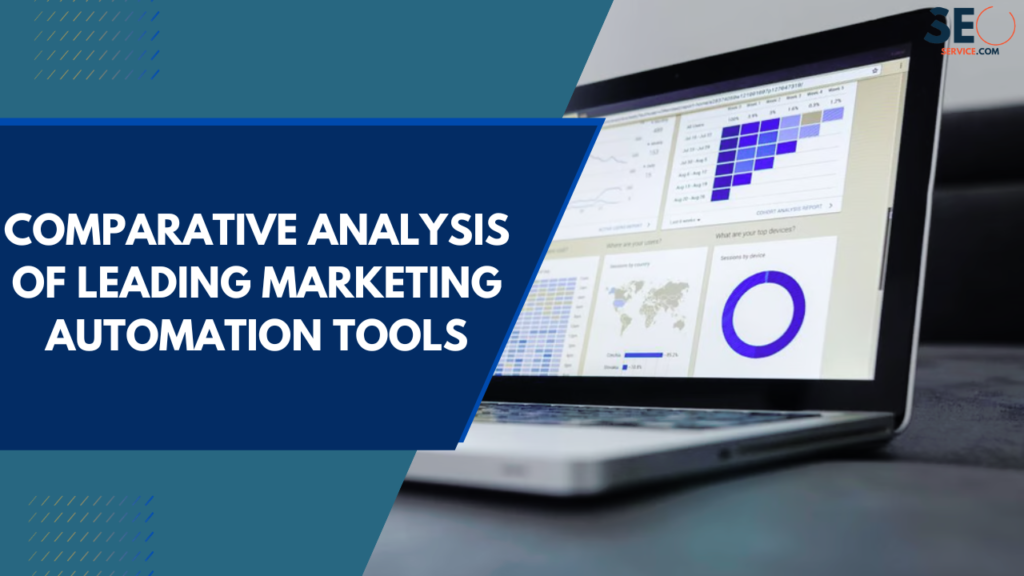
Now that we’ve explored selection criteria, let’s compare some of the most capable and user-friendly marketing automation systems available today at varying price points and feature sets:
HubSpot
- All-in-one CRM suite with powerful marketing, sales, and service tools
- Centralized database to manage all customer interactions
- 1,000+ integrations with business apps like Gmail, Facebook, etc.
- Flexible bundles and pricing plans to match business needs
- Easy to use interface and set up for small businesses to enterprises
- Detailed analytics reporting to track ROI across sales and marketing
Mailchimp
- Leading email marketing platform for campaigns, automation and analytics
- Segment contacts based on preferences and engagement
- 100+ customizable templates for emails, landing pages, postcards
- Integrates with ecommerce platforms like Shopify and social media
- Flexible pricing plans from free to premium features like predictive segmentation
Drip
- Specialized CRM and email marketing platform for ecommerce
- Personalized lifecycle messaging at scale based on customer data
- Automated workflows convert customers over their lifetime
- Custom scoring models determine user engagement and value
- Powerful segmentation and targeting of customer groups
- Flexible implementation for any size of ecommerce business
- Detailed analytics provide actionable insights
Marketo
Robust B2B marketing automation with lead management and attribution analytics for the enterprise.
- Robust B2B marketing automation platform for enterprises
- Comprehensive lead management with customizable scoring models
- Multi-touch attribution analytics for measuring program success
- Cross-channel marketing for coordinated customer engagement
- Advanced personalization and segmentation capabilities
- Integration with CRM systems for unified marketing and sales efforts
- Detailed reporting for process optimization and ROI measurement
- Scalable and collaborative platform suitable for sales and marketing alignment
Scribe
- Connect data across enterprise apps with pre-built connectors and intuitive interface.
- Automate data migration and workflows with AI documentation.
- Flexible pricing from free to premium subscriptions.
ActiveCampaign
- Mid-market focused marketing automation and lightweight CRM
- 300+ app integrations including Shopify, Salesforce, Zendesk etc.
- Powerful email marketing with deliverability protection
- Drag and drop email designer, forms, landing pages
- Flexible pricing, free migration
- Industry leading support and 100% uptime SLA
Omnisend
- Streamlined email and SMS marketing automation platform purpose-built for ecommerce
- Omnichannel workflows and personalization to drive sales across email, SMS, push notifications
- Pre-built templates, forms, automations to accelerate campaigns
- Integrations with all major ecommerce platforms like Shopify and CRMs
- Flexible pricing plans based on contacts
All considered, HubSpot and ActiveCampaign deliver the best marketing automation software blend of approachable automation capabilities for most growing companies. But weigh the options against budgets and needs.
Exploring Diverse Marketing Automation Tools
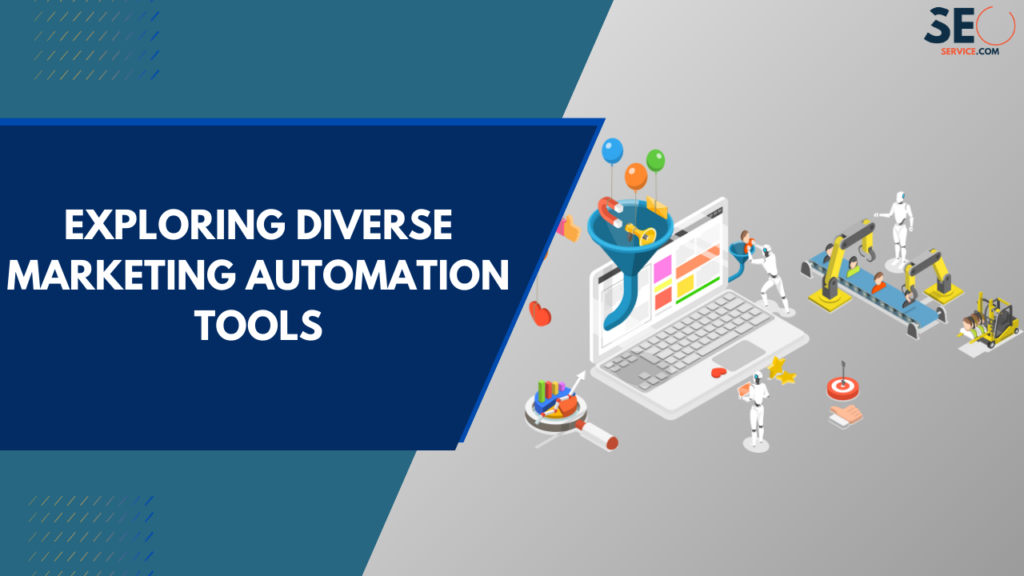
This article explores the diverse landscape of marketing automation tools. We explain the features and use cases of different leading options in the market.
All-in-one Marketing Automation Tools
For those seeking an integrated platform addressing nearly all martech needs, consider these leading all-in-one solutions:
HubSpot
Leading freemium marketing, sales and service CRM. Scales from startup to enterprise.
ActiveCampaign
Powerful mid-market automation with 300+ integrations and great support.
Keap (formerly Infusionsoft)
Sales and marketing automation focused on SMBs. Limited complexity.
Ontraport
Affordable automation blending CRM, landing pages, and email.
Drip
Specialized Ecommerce CRM and email automation for personalized lifecycle messaging that converts at scale.
Marketo
Enterprise-focused with advanced analytics and attribution for B2B.
Email Marketing Automation Tools
Among dedicated email marketing automation systems, these options excel:
Mailchimp
Leading email automation for campaigns, segmentation and deliverability. Expanding beyond email.
Omnisend
Ecommerce-focused email automation platform with omnichannel messaging. Great deliverability.
Sendinblue
Affordable solution good for small business email automation and SMS.
ConvertKit
Email automation specifically designed around creators and influencers.
GetResponse
Powerful email and landing page builder with webinars and marketing automation.
Drip
Specialized Ecommerce CRM and email automation for personalized lifecycle messaging that converts at scale.
Social Media Automation Tools
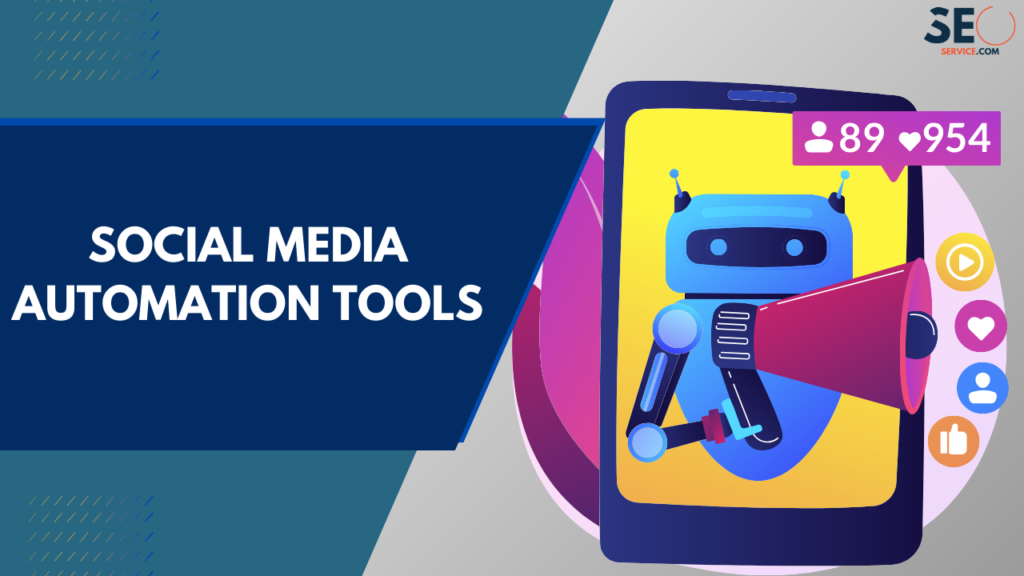
Managing social media marketing at scale requires specialized automation such as:
Hootsuite
Social media management with scheduling, analytics, and team collaboration.
Sprout Social
Social media monitoring, engagement, analytics and reporting.
Buffer
Affordable social media scheduling and analytics focused on engagement.
MeetEdgar
Repurposes old social posts into fresh content with AI curation.
Sendible
Social media marketing platform with Instagram and Twitter analytics.
Sprinklr
Enterprise social media management including paid media and influencers.
Customer Journey Automation Tools
Optimizing different phases of the customer lifecycle benefits from automation like:
ActiveCampaign
Automated customer journeys from acquisition to re-engagement.
Acoustic
Journey analytics and personalized cross-channel engagement.
Emarsys
Omnichannel customer engagement automation leveraging AI.
Adobe Journey Optimizer
Enterprise cross-channel journey mapping and attribution.
Pricing Automation Tools
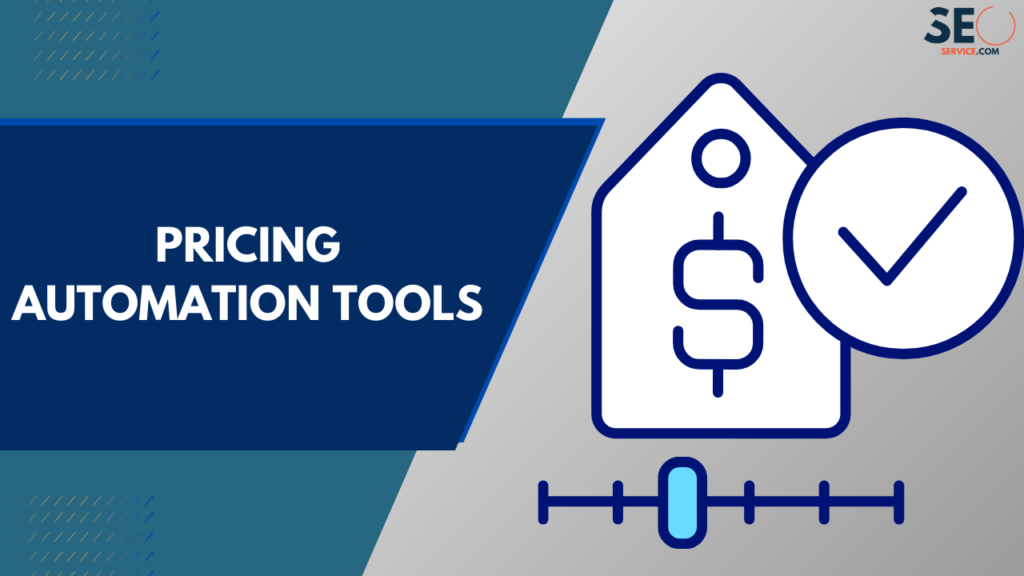
Strategic pricing benefits from the following best marketing automation software:
Price Intelligently
Algorithmic price optimization based on competitor and sales data.
Feedvisor
Automated pricing for brands selling on Amazon and Walmart.
Prisync
Ecommerce dynamic pricing adjusted to market conditions.
Snipcart
Shopping cart abandonment recovery with automated discounts.
Competera
Real-time pricing intelligence to inform competitive strategy.
Advertising Automation Tools
Streamlining paid social and PPC at scale is enabled by martech like:
Marin Software
Cross-channel ad management with advanced analytics and attribution.
Kenshoo
PPC campaign automation across Google, Facebook and more.
AdRoll
Retargeting ads across channels based on behavioral data.
4C
Data-driven marketing mix modeling and media planning.
Loyalty And Referral Marketing Automation
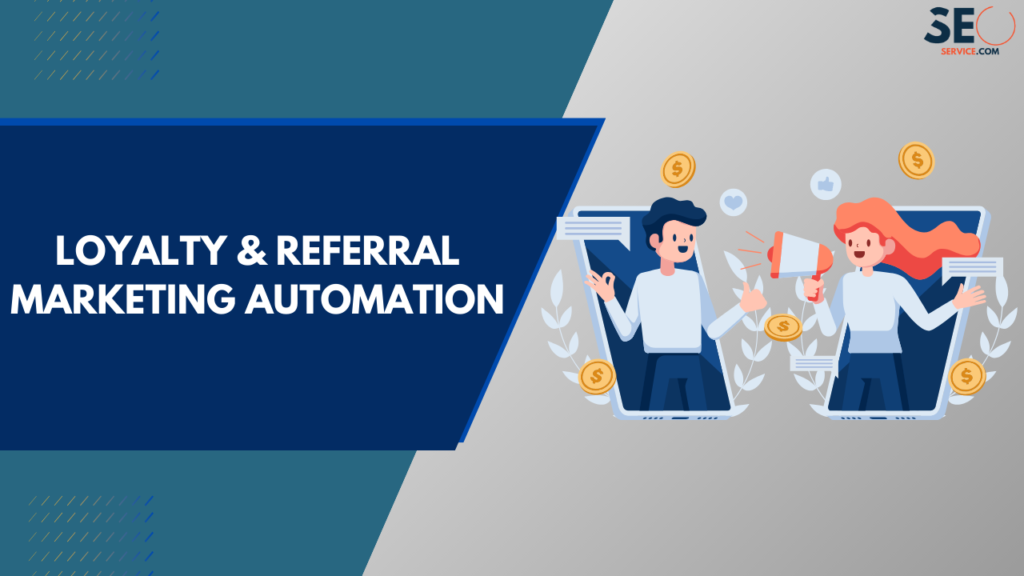
Accelerating referrals and retention requires specialized platforms including:
Extole
Turns customers into brand advocates through referrals and reviews.
Smile.io
Automated loyalty program management across channels.
Tapfiliate
SaaS tool for multi-tier affiliate marketing and influencer programs.
Referral SaaSquatch
Customer referral program automation with rewards.
Amplifinity
Employee and customer advocacy tracking and rewards redemption.
Addressing Common Concerns and Challenges
The most pressing obstacles in harnessing the best marketing automation software come down to data complexity, integration needs, selecting the ideal solution and building user capability through training. Take time to build clean centralized data for automation and carefully map software workflows to the customer journey.
When evaluating options for the best marketing automation software, scrutinize support resources, ease of use, and flexibility to accommodate future needs and integrations. Patience and continual self-education is key to mastering automation software.
Future Trends and Innovations in Marketing Automation
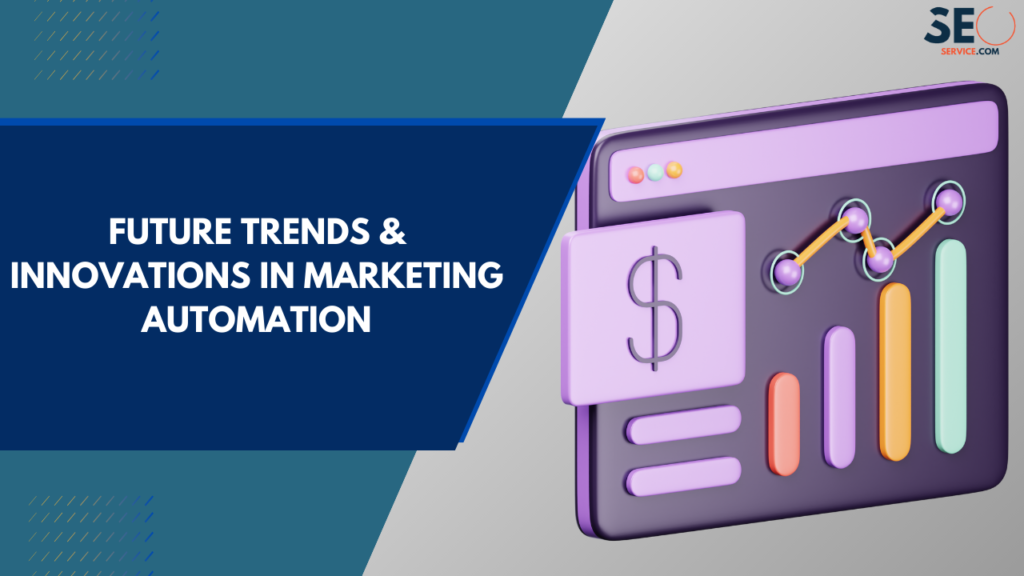
Intelligent and Dynamic Content
AI-powered personalization
- Marketing automation platforms will leverage AI to guide highly dynamic and personalized content, offers, messaging across channels
- Algorithms will analyze customer data and behaviors to determine next best content or action in real-time
- This hyper-personalization will be more predictive and contextual through location, buying stage etc.
Generative content capabilities
- Platforms will use generative AI to automatically create initial drafts of emails, landing pages, social posts etc.
- This will accelerate content creation while still needing human review and refinement
- Over time the AI models will continue to improve based on feedback and performance data
Omnichannel Optimization
Unified data and journey orchestration
- Connecting data across sales, marketing, service channels will fuel sharper personalization
- Mapping full customer journeys to tailor engagements across touchpoints
Expanded channel and device coverage
- Expect automation to expand further into new digital channels like in-app, connected TV, streaming audio etc.
- Optimization across mobile/desktop and devices will improve
Advanced Campaign Execution
- AI will guide recommendations on budget allocation, channel selection, campaign timing based on data
- But human expertise is still crucial for strategy, creativity, interpreting performance etc.
- Hybrid model to execute sophisticated campaigns leveraging both human and software capabilities
FAQs
Q: What features should I look for in marketing automation software?
Key features include lead scoring, email/SMS campaigns, landing page builders, analytics, and integrations with CRM or ecommerce platforms.
Q: How much does best marketing automation software cost?
Pricing varies widely from free basic plans to premium plans costing over $1,000 per month based on contacts, features and support.
Q: What are some top marketing automation platforms?
Top platforms include HubSpot Marketing Hub, ActiveCampaign, Ontraport, Keap, Salesforce Pardot, and Marketo Engage.
Q: Is marketing automation software worth it for small businesses?
Yes, many tools like Mailchimp or Omnisend have affordable plans under $100/month tailored for small businesses.
Q: How can marketing automation software help my business?
It can automate repetitive tasks like emails and social media and provide data to personalize messaging and optimize marketing ROI.
Conclusion
When leveraged effectively, the best marketing automation software empowers growing brands to execute sophisticated campaigns that engage, convert, and delight customers with less staff through optimized workflows. The key is selecting the best marketing automation software aligned to your capabilities and resources. All-in-one systems like HubSpot and ActiveCampaign present compelling options for small to mid-sized businesses seeking to consolidate capabilities under a single cost-effective roof.
For enterprises with greater complexity, best-of-breed point solutions may suit needs better. Weigh the solutions against your budget, resources, and objectives. Proper implementation and training will ensure maximizing value. Done right, automation lifts marketing performance exponentially.best marketing automation software
